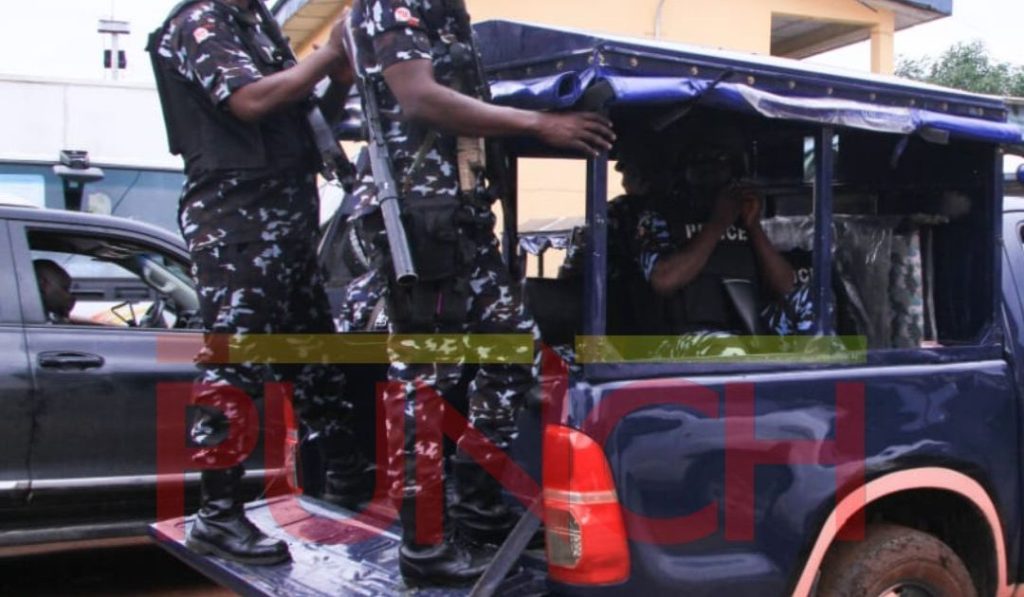The statement “No report of 200 death threats from APC spokesman – Police” succinctly encapsulates the Nigerian police force’s denial of receiving any reports concerning alleged death threats issued by the spokesperson of the All Progressives Congress (APC). This seemingly simple declaration, however, unfolds against a backdrop of complex political dynamics, potential misinformation, and the critical role of accurate reporting in a democratic society. Understanding the full implications requires a deeper examination of the context, the potential motivations of the involved parties, and the broader implications for Nigerian politics and public trust.
The statement itself is a reactive one, suggesting a prior claim or report circulating about the APC spokesperson making death threats against approximately 200 individuals. This initial allegation, the source of which is not specified in the given headline, forms the crucial starting point for understanding the police denial. Without knowing the origin and nature of the accusation, it is difficult to assess the veracity of the police statement. Was the allegation made formally through official channels, or was it disseminated through less formal means, such as social media or word of mouth? The credibility of the initial claim significantly impacts how the police denial should be interpreted. If the allegation originated from a reputable source with supporting evidence, the police denial raises serious questions about their investigatory processes. Conversely, if the accusation stemmed from a less credible source or lacked substantiation, the police denial serves as a necessary clarification to prevent the spread of misinformation.
The political landscape in Nigeria, characterized by intense competition and occasional accusations of intimidation and violence, provides an essential context for interpreting this situation. The APC, as the ruling party, faces heightened scrutiny, and its actions, including the statements made by its representatives, are often subject to intense public debate. Allegations of death threats, particularly on such a large scale, are incredibly serious and can significantly impact public perception. Such accusations can be used as political tools to discredit opponents and influence public opinion. Therefore, determining the truth behind the initial allegation and the subsequent police denial is crucial for maintaining a fair and transparent political process.
The role of the media in reporting such incidents is paramount. Responsible journalism demands thorough investigation and verification before disseminating information, especially allegations as severe as death threats. The headline’s brevity underscores the need for more comprehensive reporting to provide the public with the necessary context and details surrounding the situation. Simply reporting the police denial without exploring the original allegation and the surrounding circumstances risks perpetuating incomplete or potentially misleading narratives. Investigative journalism, including tracking the origin of the accusation, seeking evidence, and interviewing relevant individuals, is essential to uncover the truth and ensure accurate information reaches the public.
The police force’s credibility is also a critical factor in this scenario. Public trust in law enforcement is essential for maintaining law and order and ensuring accountability. The police denial, while brief, carries significant weight, and its veracity must be thoroughly examined. Were appropriate investigative procedures followed in response to the initial allegation? If a formal report was indeed filed, what steps did the police take to investigate the claims? Transparency in the police’s actions, including providing details about their investigative process, is crucial for building and maintaining public trust. A lack of transparency, on the other hand, can fuel speculation and further erode public confidence in the police force’s ability to impartially investigate and address such serious allegations.
Ultimately, the statement “No report of 200 death threats from APC spokesman – Police” raises more questions than it answers. The headline itself calls for further investigation and clarification to fully understand the situation. The potential implications of both the initial allegation and the subsequent police denial are significant, affecting not only the individuals involved but also the broader political landscape and public trust in Nigerian institutions. A commitment to thorough investigation, transparent reporting, and accountability from both the police and the media is essential to navigate this complex situation and ensure the truth prevails. Without a commitment to these principles, the public remains susceptible to misinformation and manipulation, undermining the foundations of a healthy democracy.














